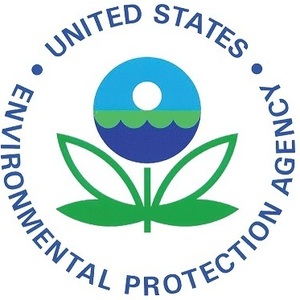US EPA approves another 2017 small refinery exemption to RFS

March 29, 2019
BY Erin Krueger
Data released March 28 by U.S. EPA indicate the agency has approved another small refinery exemption under the Renewable Fuel Standard for compliance year 2017, bringing the total number of approved waivers for the compliance year to 35.
To date, the EPA has received 37 petitions seeking small refinery exemptions from RFS blending obligations for compliance year 2017. The agency has approved 35 of those petitions, with one still pending and one classified as ineligible or withdrawn. The 35 approved petitions have exempted approximately 1.82 billion renewable identification numbers (RINs), or approximately 17.05 billion gallons of gasoline and diesel from meeting RFS blending targets.
EPA data shows no other changes were made to the status of waiver petitions filed for compliance years 2018, 2016, 2015, 2014 or 2013 between March 14 and March 28.
As of March 28, 39 petitions seeking small refinery exemptions for 2018 have been filed. All 39 of those petitions are still pending.
Advertisement
Advertisement
For compliance year 2016, the EPA has received 20 small refinery petitions, with 19 approved to date and one still pending. The 19 approved petitions have exempted approximately 790 million RINs, or 7.84 billion gallons of gasoline and diesel from meeting RFS blending targets.
For compliance year 2015, the EPA received 14 petitions. The agency approved seven petitions and denied six. One petition was declared ineligible or withdrawn. The seven approved petitions have exempted approximately 290 million RINs, or 3.07 billion gallons of gasoline and diesel from meeting RFS blending targets.
The EPA received 13 small refinery petitions for compliance year 2014. The agency approved eight petitions, but denied the remaining five. The eight approved petitions exempted 210 million RINs, or approximately 2.3 billion gallons of gasoline and diesel from meeting RFS blending targets.
For the 2013 compliance year, EPA received 16 petitions. The agency approved eight and denied seven. One petition was declared ineligible or withdrawn. The eight approved petitions exempted 190 million RINs, or approximately 1.98 billion gallons of gasoline and diesel form meeting RFS blending obligations.
Advertisement
Advertisement
The Renewable Fuels Association, Growth Energy and the Iowa Renewable Fuels Association issued statements in response to the news that EPA approved another small refinery exemption for compliance year 2017.
“If these exemption trends continue, they will fully and completely undermine the RFS at the expense of rural America and cause consumers to pay more at the pump for dirtier fuels,” said Geoff Cooper, president and CEO of the RFA. “With dozens of ethanol plants closing or idling and U.S. ethanol consumption showing the first annual decline in 20 years, it is unfathomable that the new EPA administrator would double down on former Administrator Pruitt’s unjustifiable abuse of the small refinery exemption provision. We hope that today’s waiver marks the end of this destructive trend and hope to see a more transparent process in the weeks to come as EPA decides on the 39 pending 2018 exemption requests.”
“New leadership at the EPA was supposed to mean a return to the president’s pro-biofuel agenda,” said Emily Skor, CEO of Growth Energy. “Instead, we’re getting a man-made recession in rural America, just to boost profits for a few oil giants. There’s no way to view continued abuse of EPA wavers except as a betrayal of rural manufacturing workers and farm communities. The EPA has now destroyed 2.6 billion gallons of biofuel demand, eliminating the market for a billion bushels of U.S. grain. Farm families are already facing natural disasters, on top of lost export markets. If the EPA doesn’t act now to restore the market promised to farmers, there is little hope for a swift rural recovery. EPA must start considering denials for the record 39 exemption requests that have already arrived for 2018. If 2018 looks anything like 2017 in terms of refinery handouts, the damage to the rural economy could be irreparable.”
Monte Shaw, IRFA’s executive director, said, “Today’s announcement highlights some startling facts. The Trump administration has granted over 2.5 billion gallons of SREs. The Trump administration has not denied a single SRE to date, even as refiners enjoy record profits and ethanol plants are shuttered and sold. For the first time in 20 years, U.S. ethanol use fell in 2018. And farm income is declining for yet another year. This bleak record is not what President Trump promised to Iowa voters. A major course correction is needed before it's too late.”
Related Stories
While final IRS guidance is still pending, the foundation of the 45Z program is well defined. Clean fuel producers should no longer be waiting; they can now move forward with critical planning and preparation, according to EcoEngineers.
The IRS on July 21 published a notice announcing the 2025 calendar-year inflation adjustment factor for the Section 45Z clen fuel production credit. The resulting adjustment boosts maximum the value of the credit by approximately 6%.
The U.S. Senate on July 23 voted 48 to 47 to confirm the appointment of Aaron Szabo to serve as assistant administrator of the U.S. EPA’s Office of Air and Radiation. Biofuel groups are congratulating him on his appointment.
U.S. Secretary of Agriculture Brooke L. Rollins today announced the reorganization of the USDA, refocusing its core operations to better align with its founding mission of supporting American farming, ranching, and forestry.
The U.S. Department of Energy’s Office of Energy Efficiency and Renewable Energy is soliciting public comments on a preliminary plan for determining provisional emissions rates (PER) for the purposes of the 45Z clean fuel production credit.
Upcoming Events










